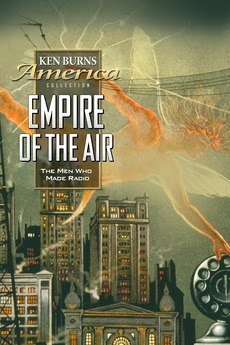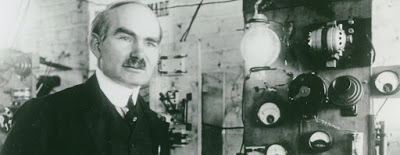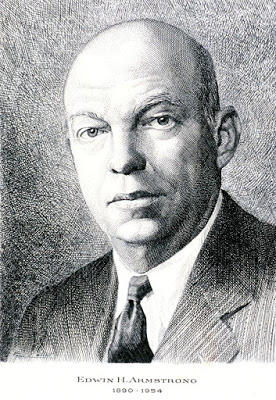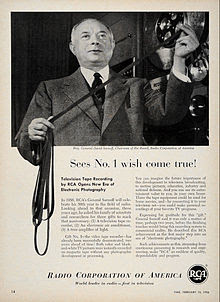Ken Burns - The Empire
of the Air: The Men Who Made Radio

Director:
Ken Burns
Year: 1992
Rating: 7.0
If you came into the world over the past twenty years or so, you have been
connected to it on so many levels that you take for granted. But I sometimes
think of my grandfather who was born in the 1890's and passed away in the
1980's and think about the things he witnessed in his lifetime and the technical
advances he had to adjust to. While he lived he saw the introduction of the
phone, of radio, of automobiles, of movies, of airplanes, of flights to the
moon and of TV which he loved. All these things of course did not come out
of nowhere but were the inventions of men who dreamed of things that people
once thought impossible. The idea of being able to send sound through the
air waves into everyone's home was one of these dreams that most people could
not imagine and this Ken Burns documentary tells the tangled tale of the three
men in America who brought this idea to life - all three pretty much forgotten
today (certainly by me) though their work has greatly impacted our lives.
It is a story of great ambition, great inventiveness, great struggle but
also that of greed, bitterness, ego and failure.
Lee de Forest grew up in Iowa fascinated with the work that Marconi was
doing with sending telegraphic signals from station to station using the
air waves. He tried getting a job with Marconi but was rebuffed and so he
set out on his own to improve what Marconi had done and send sound through
the air waves. He was able to do so by inventing the Audion Vacuum Tube.
In 1907 the first voice was transmitted over radio and soon he transmitted
a concert by Caruso. But he was also partly a con man and a terrible business
man and went bankrupt constantly but without his invention there would have
been no radio, no long distance telephone and perhaps not even TV.
A few years later another brilliant engineer came along - Edwin Howard Armstrong
- and he took the Audion and made it much more powerful through the Regenerative
Circuit. Suddenly you could send radio signals vast distances. De Forest felt
that this was his invention and the two of them fought in the courts for
years and years over this. In the meantime, Armstrong gave a demonstration
of his invention to a man working for Marconi, David Sarnoff, who immediately
saw the huge commercial potential for this. He wrote to Marconi telling him
of this but Marconi could not be bothered to reply.
So Sarnoff went out on his own and set up RCA to sell radios and eventually
created the NBC network to produce and broadcast content. Armstrong came to
him a few years later with another idea - a better way to transmit radio -
called frequency modulation - ie FM. Sarnoff though saw this as a threat to
his business and the millions of radios that only received AM and the two
of them became bitter enemies over time as Sarnoff really tried to screw this
man whose ideas had created his business. Later Sarnoff said he wasn't interested
in FM because he had another idea. TV. And in 1939 he transmitted his first
TV images though the medium wasn't to catch on till after WWII and to a large
degree put radio on the backburner. I found this fascinating and Burns
by this time is getting more sophisticated in his story telling than his
earlier ones which are fairly straightforward and conventional. There is
a lot of old radio up on YouTube and lately I have listened to a few Sherlock
Holmes with Basil Rathbone and Nigel Bruce out of curiosity. These are the
guys who made it possible.




